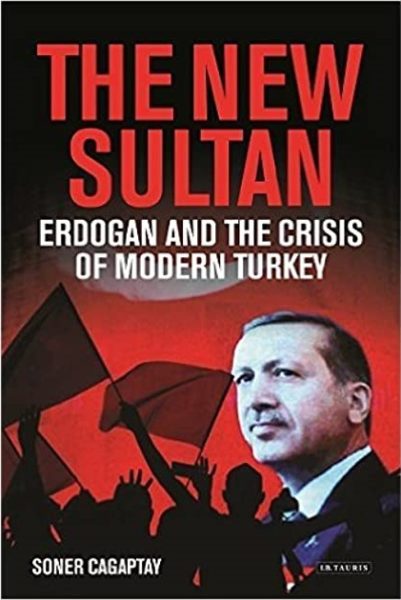Scott Alexander reviews Soner Cagaptay’s recent book The New Sultan: Erdogan And The Crisis Of Modern Turkey:
If you only learn one thing from this post: it’s pronounced “air-do-wan”.
If you learn two things from this post, learn that, plus how a country which starts out as a flawed but somewhat-liberal democracy can lapse into near-dictatorship over the course of a few years.
I got The New Sultan: Erdogan And The Crisis Of Modern Turkey because, as a libertarian, I spend a lot of time worrying about the risk that my country might backslide into illiberal repression. To develop a better threat model, I wanted to see how this process has gone in other countries, what the key mistakes were, and whether their stories give any hints about how to prevent it from happening here. Recep Tayyip Erdogan transformed Turkey from a flawed democracy to a partial dictatorship over the past few decades, and I wanted to know more about how.
As an analysis of the rise of a dictator, this book fails a pretty basic desideratum: it seems less than fully convinced the dictator’s rise was bad. Again and again I found myself checking to make sure I hadn’t accidentally picked up a pro-Erdogan book. I didn’t; author Soner Cagaptay is a well-respected Turkey scholar in a US think tank who’s written other much more critical things. The fact is, Erdogan’s rise is inherently a pretty sympathetic story. If he’d died of a heart attack in 2008, we might remember him as a successful crusader against injustice, a scrappy kid who overcame poverty and discrimination to become a great and unifying leader.
I want to go into some of this in more depth, because I think this is the main reason why Erdogan’s example doesn’t generalize to other countries. What went wrong in Turkey was mostly Turkey-specific, a reckoning for Turkey’s unique flaws. Erdogan rose to power on credible promises to help people disenfranchised by the old system; by the time he turned the tables and started disenfranchising others in turn, it was too late to root him out. If there’s a general moral here, it’s that having the “good guys” oppress and censor the “bad guys” is fun while it lasts, but it’s hard to know whether you’re building up a karmic debt, or when you’re going to have to pay the piper.
Given how hard it is to convince people of that moral, let’s go through the full story in more detail.
And given that it’s impossible to discuss modern Turkey without at least briefly touching on the founder of the country, here’s an amusing apocryphal story about “The Father of the Turks”:
Medieval Turkey was dominated by the Ottoman Empire, officially an Islamic caliphate though in practice only inconsistently religious, ruled by autocratic sultans and a dizzying series of provincial governors. As time passed, they fell further and further behind Western Europe; by World War I, they were a mess. As the stress of the war caused the empire to fracture, General Mustafa Kemal seized power, reorganized the scraps of Ottoman Anatolia into modern Turkey, and was renamed ATATURK, meaning “Father of Turks”.
Ataturk was born in Ottoman-controlled Greece, and was typical of a class of military officers at the time who were well-educated and “Europeanized”. He wanted to turn backwards Turkey into an advanced Western country — and Western countries were mostly secular. He saw Islam — the religion of the old Ottoman Empire — as a roadblock, and passed various laws meant to relegate it to the margins of public life.
(my favorite Ataturk story, probably apocryphal, was that he passed a law banning women from wearing hijabs. Nobody followed it and the police wouldn’t enforce it, so he passed a second law requiring prostitutes to wear hijabs, after which other women abandoned them. As far as I can tell this is an urban legend, but it captures the spirit of the sort of measures he took to drag Turkey, kicking and screaming, into secular modernity.)




